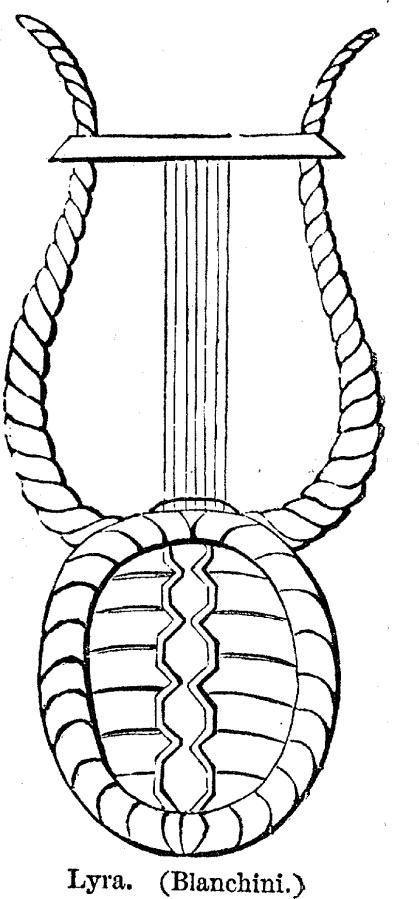
 |
Freethought & Rationalism ArchiveThe archives are read only. |
|
|
#1 | ||
|
Veteran Member
Join Date: Jun 2010
Location: seattle, wa
Posts: 9,337
|
Here is the page from Jastrow http://www.hebrewbooks.org/pagefeed/..._38237_226.pdf I am particularly fascinated about the possibility that the term might be associated with 'fire' and 'yoke.' For 'the baptism by fire' is always associated with martyrdom.
Nir is identified as the Aramaic equivalent of ζυγόν http://www.perseus.tufts.edu/hopper/...entry=jugum-cn Here is the discussion in Plato's Cratylus: Quote:
 Quote:
|
||
|
|
|
|
#2 |
|
Veteran Member
Join Date: Jun 2010
Location: seattle, wa
Posts: 9,337
|
We can therefore take the question step by step. Was ζυγόν used to describe the function or the essence of a 'cross'? In its most banal sense it was something which brought two things together like the yoke which was used to tie two oxen together
 But was there an applied sense that a ζυγόν was the tying together of two beams or the beam which crossed another to make a Cross? I don't know. Or was the term used that was in Aramaic with respect to its Aramaic equivalent ניר? |
|
|
|
|
#3 | |
|
Veteran Member
Join Date: Jun 2010
Location: seattle, wa
Posts: 9,337
|
Indeed one could possibly see that the author of Hebrew's interest in the sacrifice of the red heifer could have introduced the association with ζυγόν:
Quote:
Look at Matthew 11:30 ὁ γὰρ ζυγός μου χρηστὸς καὶ τὸ φορτίον μου ἐλαφρόν ἐστιν. |
|
|
|
|
|
#4 | |||
|
Veteran Member
Join Date: Jun 2010
Location: seattle, wa
Posts: 9,337
|
Quote:
Quote:
Quote:
|
|||
|
|
|
|
#5 | |
|
Talk Freethought Staff
Join Date: Apr 2011
Location: Deep South, USA
Posts: 7,568
|
Quote:
One of the chief requirements of a martyr, is to not survive one's martyrdom. |
|
|
|
|
|
#6 | ||||
|
Veteran Member
Join Date: Jun 2010
Location: seattle, wa
Posts: 9,337
|
Actually I can do one better. It would seem that Clement's citation of the entire saying is known and differs significantly from the existing gospel. In Stromata 5.5 we read his cite the gospel again:
Quote:
Quote:
Quote:
Quote:
|
||||
|
|
|
|
#7 | ||||
|
Veteran Member
Join Date: Jun 2010
Location: seattle, wa
Posts: 9,337
|
And then when we do some more digging we hit a brick wall. That's the amazing thing about Clement of Alexandria. For when we look to the Exhortation to the Greeks we find what appears at first glance to be a direct citation of Matthew 11:29 - 30 but strangely, it is couched in an an imaginary proclamation made by Jesus through Clement's hand to the audience of his present treatise Clement writes:
Quote:
Quote:
Quote:
Quote:
|
||||
|
|
|
|
#8 | ||
|
Veteran Member
Join Date: Jun 2010
Location: seattle, wa
Posts: 9,337
|
So here are the two announcements of 'grace' in each account. First Clement's Jesus:
Quote:
Quote:
|
||
|
|
|
|
#9 | |
|
Veteran Member
Join Date: Jun 2010
Location: seattle, wa
Posts: 9,337
|
The only question is how do we reconcile the rest of the material in each account and why they differ so markedly from one another - at least at first glance. I think that even Andrew Criddle will acknowledge that if we can do that then we are finally on the road to authenticating Secret Mark. The path there is to follow the 'yoke' references in Irenaeus in his account of the followers of Mark:
Quote:
|
|
|
|
|
|
#10 | |
|
Veteran Member
Join Date: Sep 2003
Location: On the path of knowledge
Posts: 8,889
|
Quote:
|
|
|
|
| Thread Tools | Search this Thread |
|